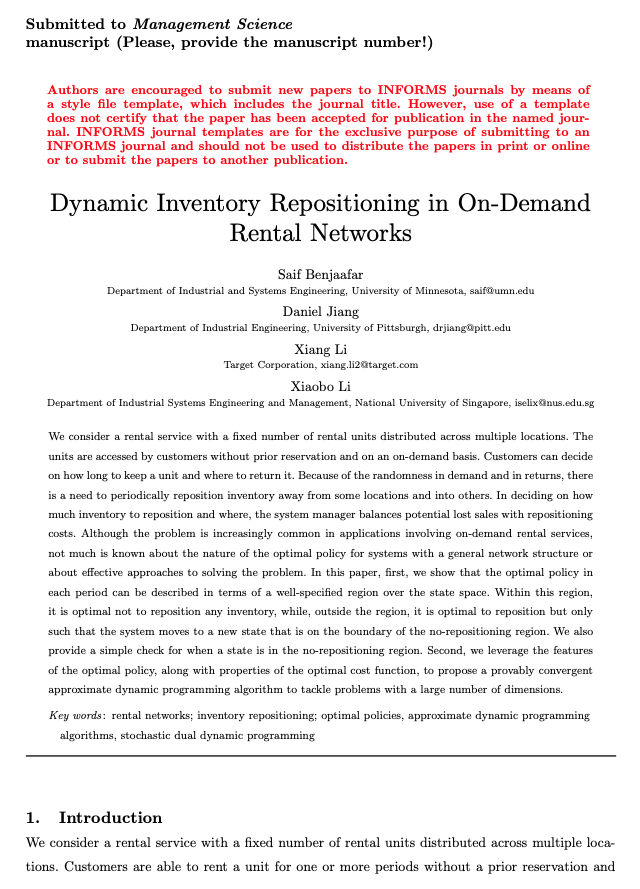We consider a rental service with a fixed number of rental units distributed across multiple locations. The units are accessed by customers without prior reservation and on an on-demand basis. Customers can decide on how long to keep a unit and where to return it. Because of the randomness in demand and in returns, there is a need to periodically reposition inventory away from some locations and into others. In deciding on how much inventory to reposition and where, the system manager balances potential lost sales with repositioning costs. Although the problem is increasingly common in applications involving on-demand rental services, not much is known about the nature of the optimal policy for systems with a general network structure or about effective approaches to solving the problem. In this paper, first, we show that the optimal policy in each period can be described in terms of a well-specified region over the state space. Within this region, it is optimal not to reposition any inventory, whereas, outside the region, it is optimal to reposition but only such that the system moves to a new state that is on the boundary of the no-repositioning region. We also provide a simple check for when a state is in the no-repositioning region. Second, we leverage the features of the optimal policy, along with properties of the optimal cost function, to propose a provably convergent approximate dynamic programming algorithm to tackle problems with a large number of dimensions.

